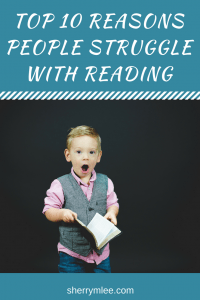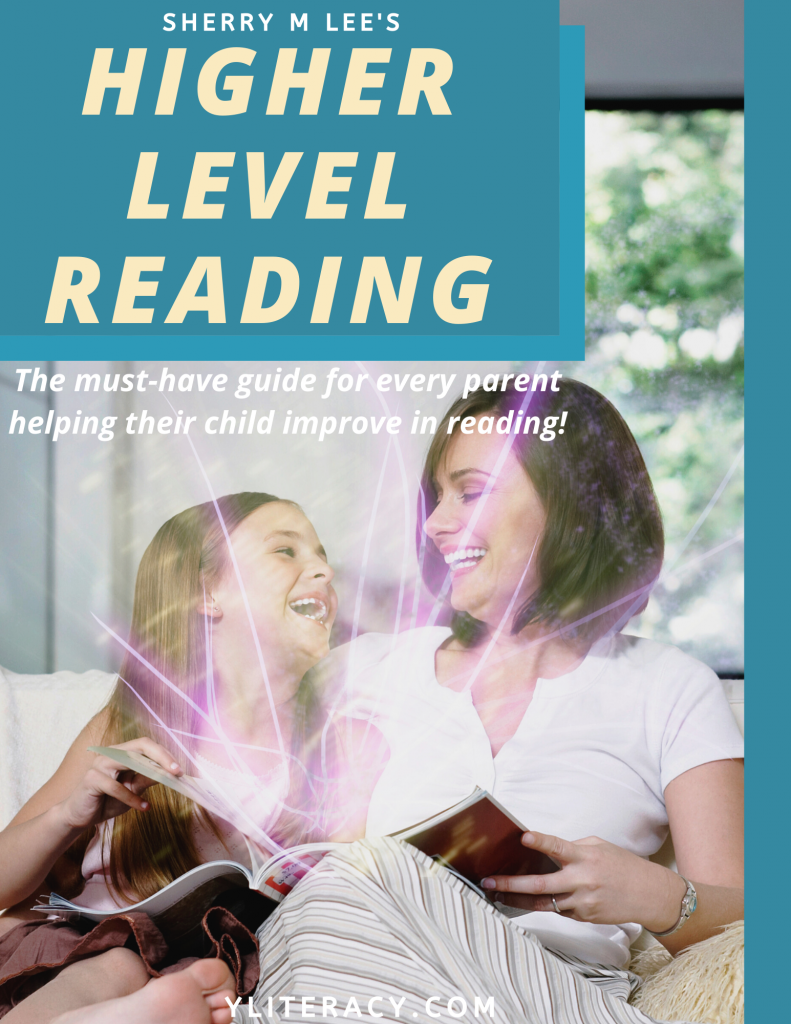Do you know of anyone who has a struggle with reading? Have you ever wondered why? Or have you simply assumed it was due to laziness or a lack of motivation? Well, I can 100% guarantee you it is NEVER due to laziness or a lack of motivation. That would be like believing that a one year old who is not yet walking must be lazy or not motivated because other kids are walking as early as 9 months. Yet we seem to accept the process with the little one learning to walk independently.
Worse yet, have you ever heard a parent or someone else refer to a child as struggling in such a way that implies the child is not so smart? Yikes! I cringe just thinking about it, yet these subtle (or not so subtle) references are made all of the time to the detriment of the child!
However, just a few of these people that were referred to as being at least one of the aforementioned due to a struggle with reading include Jamie Oliver, Whoopi Goldberg, Stephen J. Cannell and Henry Winkler. I don’t know about you, but I certainly wouldn’t refer to any of these 4 as being anything but dedicated and brilliant!
A difficulty with reading does NOT mean a lack of intelligence!
*Disclaimer: This post contains affiliate links, meaning I make a small commission on purchases made at no extra cost to you. Thank you for your support!

So what are the real reasons someone may struggle with reading?
Let’s first look at a few of the reasons in which all of the phonics in the world wouldn’t touch!
Visual Impairment:
This one may seem obvious. However, unless children are taken for an annual eye exam, this definitely needs to be considered as a possibility for why there may be a struggle with reading.
Visual Tracking:
Visual tracking refers to when the eyes are not able to work together in unison. This could be due to weak eye muscles or to the muscles around one eye being stronger than the other, not allowing for the eyes to work together in alignment. Sometimes this is noticeable right away; other times it will happen after fatigue sets in for one or both eyes. Words tend to become blurry, lines become skipped, and remaining focused on the words starts to feel impossible. This is often not picked up during an eye exam since the vision in both eyes can still be good.
Perceptual Processing:
Perceptual processing has to do with how the brain processes visual information. It’s assumed that human brains automatically adjust to various lighting and colors. However, this is not always the case! For those who do not automatically adjust, reading can be very difficult to do. There are many distortions that can happen to print on a page when trying to read while having a perceptual processing difficulty. Distortions range from words becoming blurry to lines of print swirling around or appearing as though they have completely disappeared!
Neurotiming:
Our brain cells have to talk to one another and communicate. One brain cell sends a message that another brain cell must know how to quickly understand and respond to. If there is any delay in this process happening ANYWHERE within the brain itself, then the brain is not firing in a united motion. Neurotiming plays a direct role in one’s ability to focus, process language, keep balance when moving, play a sport, and read with fluency. Following multi-step directions with ease is also directly impacted by an individual’s neurotiming. Neurotiming can also contribute to an individual’s struggle with reading.
Social Thinking:
Social thinking in reading basically refers to an individual’s ability to look at a situation within a story and be able to make connections between themselves and the characters and/or situations they are reading about. Difficulty with social thinking tends to result in difficulty with reading comprehension.
Anxiety:
Anxiety blocks working memory. Ever sat through a test and forgotten something you knew just a moment prior? This is often anxiety blocking what we know. Anxiety can also have a huge impact on both reading with fluency and on reading with comprehension.

Ruled out all of the above? There’s still more to consider:
Dr. Steven Feifer mentions 4 different types of reading disorders. They are as follows:
Dysphonetic dyslexia:
Individuals with dysphonetic dyslexia struggle with making connections between sounds and symbols. There is often difficulty with rhyming as well.
Dyseidetic dyslexia:
Individuals with dyseidetic dyslexia tend to over-rely on phonics. These individuals also tend to have a visual strength and see the whole before the parts.
Mixed dyslexia:
The individual with mixed dyslexia has a combination of factors playing a role. Two or more of the factors discussed in this article may be playing a role in the struggle with reading.
Difficulty with Comprehension:
This type refers to individuals that can read words fluently, but are not making the necessary connections between the words on a page and the understanding of what the words are meaning.
It’s important to note that all 10 of the above can fall under the umbrella of dyslexia in a reading assessment. This is because, according to Oxford Dictionary, the definition of dyslexia is:
A general term for disorders that involve difficulty in learning to read or interpret words, letters, and other symbols, but that do not affect general intelligence.
Whatever it is that is going on tends to translate into a decreased sense of self-confidence and self-esteem during the school years. So many peers around the individual seem to be able to read with ease and it is not understood why it isn’t the same for him/her.
What Can We Do About a Struggle with Reading?
So many reading programs out there focus on a one size fits all approach. However, just like that one size fits all hat will never fit every head, the one size fits all approach to reading will never match up with what every reader needs. This will be different for everyone because of this one very important factor: Each and every person is unique! With 1 in 5 individuals continuing to struggle with reading despite intervention, it’s time to consider a bigger picture!
If you would like to learn more about any or all of these factors that can play a role into why an individual may struggle to read with ease and/or how to overcome them while still honoring an individual’s strengths, I invite you to check out my eBook Higher Level Reading. It was written specifically to support parents who are helping their reluctant reader with reading.
I would love to know your experiences with reading. Please share in the comments below.


10 Comments
What a great post Sherry, lately I have been struggling with reading my history book and it makes it hard to do my homework. I will definitely look at your suggestions.
Thank you!
Liliana
Thank you for reading, Liliana! 🙂
My husband hates to read even sometimes will fall asleep. I devour books so it’s frustrating. I wonder if he has one of the issues you mentioned.
It’s possible, Megan. I find that many individuals who hate reading hate it because it’s challenging for them.
I am reading all of these resources. I have a child with dyslexia and all of these points really hit home to us.
I was really interested in reading this. I too have difficulty in reading. However, this is due to my disabilities. So it was nice to read that I’m not the only one with reading struggles.
You’re definitely not the only one, Sonia.
These are all great tips that I will be putting into action. Some of them I have already been practicing. SO great of you to share!!
So happy you find them helpful, Melissa! 🙂